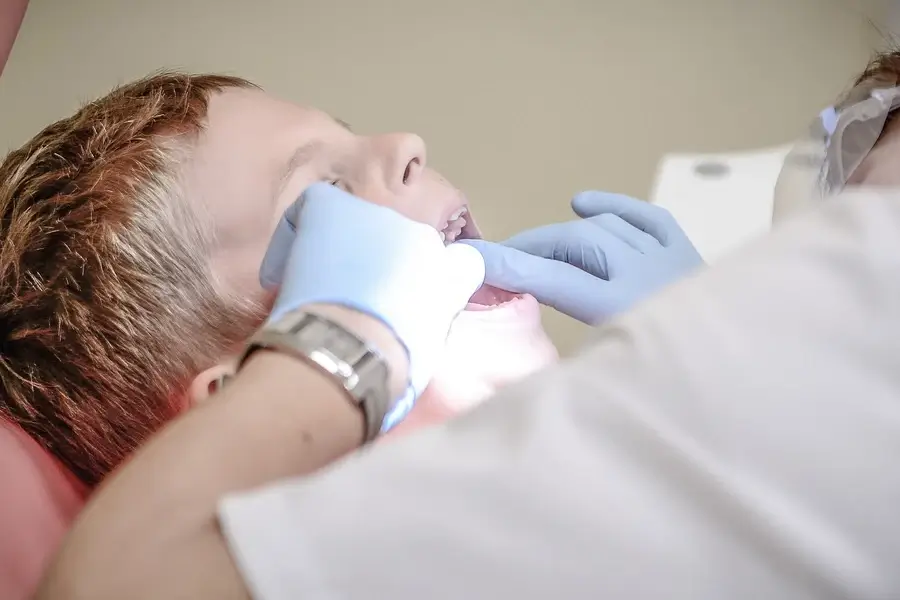Canker sores are small ulcers that develop on the soft tissues within the mouth. They are most commonly found in adolescents and teenagers. Canker sores are superficial ulcer infections. They may cause discomfort; nevertheless, they are often harmless and will disappear on their own within a week or two. Canker sores in children are examined in greater detail as follows:
Indications:
Regarding their appearance, canker sores are often round or oval, with a white or gray center bordered by a red border. When they are present, they are typically seen on the inside of the gums, lips, tongue, or cheeks.
Canker sores can cause a great deal of discomfort, particularly when the patient is eating, drinking, or talking.
In addition, they may induce a burning or tingling feeling in the area afflicted by the condition.
Reasons for this:
It is not understood what causes canker sores, although several elements are suspected to play a role in their development:
Situations such as biting the tongue or cheek, brushing too vigorously, or using orthodontic appliances can cause mouth irritation and the development of canker sores.
The development of canker sores, often referred to as aphthous ulcers, may be influenced by emotional stress. Canker sores are small, excruciatingly painful ulcers that occur on the interior of the mouth, tongue, or soft palate.
They do not spread from person to person. They are thought to be brought on by a confluence of variables, including the body’s immune system and inflammation in the areas where they are found.
Emotional stress significantly influences the occurrence of canker sores. When an individual is subjected to high amounts of stress, the body’s immune system can become damaged, making the body more prone to ulcers.
It is also possible for stress to cause changes in the body’s hormonal balance, which can result in an inflammatory reaction that contributes to the development of canker sores.
A further effect of stress is that it can alter how the body reacts to particular stimuli, such as the consumption of particular foods or the experience of damage to the mouth. These various sources of stress can potentially upset the delicate equilibrium of the oral environment, resulting in the development of canker sores.
Some children may develop canker sores due to adverse reactions to particular meals.
People prone to developing canker sores may discover that regulating their stress levels through relaxation techniques, activities that reduce stress, or counseling can help prevent or minimize the frequency and severity of these painful lesions.
Some children may develop canker sores due to adverse reactions to particular meals, such as chocolate, acidic fruits, or spicy foods. Food allergies or sensitivities can cause these reactions.
Insufficiencies in essential nutrients: Deficits in particular vitamins, such as vitamin B12 or iron, can contribute to the condition.
Infections like the common cold and influenza can compromise the immune system, making youngsters more prone to developing canker sores.
The diagnosis is:
A physician or dentist typically diagnoses canker sores by performing a straightforward visual examination of the mouth. In most cases, a further test is not required.
Management of:
Canker sores do not have a cure; however, there are several home treatments and over-the-counter drugs that can help alleviate the pain and discomfort associated with them.
Discomfort medications are available without a prescription. Acetaminophen or ibuprofen might help manage the discomfort associated with canker sores.
Topical ointments: Topical ointments containing anesthetics or corticosteroids can be applied directly to the wound to offer localized pain relief.
Utilizing a saltwater solution to rinse the mouth: Saline rinses can reduce inflammation and help calm the mouth.
Protective dental goods: Using toothpaste and mouthwash specifically developed for sensitive teeth can help reduce irritation.
It is important to seek medical attention for an accurate diagnosis.
Elimination of:
Even though there is no foolproof method to prevent canker sores, there are several habits that can help minimize the frequency and severity of these sores:
Your child should be encouraged to maintain oral hygiene by brushing and flossing twice daily. This will eliminate food particles and bacteria that could potentially irritate the mouth.
When your child is eating or brushing their teeth, remind them to be careful so they do not accidentally bite their tongue or cheek. This will help prevent accidental mouth injuries.
It is important to assist your child in developing appropriate coping techniques to manage stress, which may be a factor in the development of canker sores.
Identify and avoid food triggers: If your child appears hypersensitive to certain foods, you should try to avoid them.
Keep a balanced diet: Ensure that your child consumes a balanced diet rich in the key vitamins and minerals necessary for maintaining general health.
If You Need to See a Doctor:
You should seek medical attention if the pain that you are experiencing as a result of a canker sore is severe and prevents you from eating or drinking.
Extended Duration: If a canker sore lasts more than two weeks or keeps returning regularly, consult a medical professional to rule out any underlying disorders.
Symptoms That Are Not Common: If your kid is experiencing additional symptoms like fever, enlarged lymph nodes, or extensive mouth sores, it is important to seek medical attention for an accurate diagnosis.
When you are aware of the causes of canker sores and how to treat them, you will be able to assist your child in finding relief and preventing further outbreaks.

